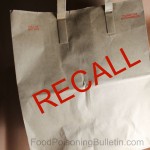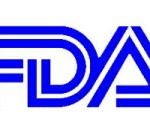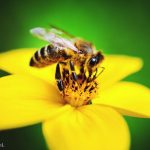The California Department of Public Health is warning consumers not to eat cactus pads, also called noodles, that have been imported from Mexico because they have contain unapproved pesticides. This product was sold at specific retail and wholesale locations around the state and may have been sold in other states. The California Department of Pesticide Regulation collected surveillance samples and found different pesticides on the product, including dimethoate, omethoate, monocrotophos and methidathion. The compounds were found at levels that pose a health risk. Monocrotophos and methidathion have been based for food use in this country for years. The FDA has been informed about this issue. CDPH Director and State Health Officer Dr. Karen Smith said in a statement, "Anyone … [Read more...]
HEB Recalls Salads, Products for Violative Pesticide Residue
The FDA's weekly Enforcement Report for December 23, 2015 has revealed that many products sold at HEB stores were recalled because they used an ingredient that had too much pesticide residue. The Enforcement Report lists recalls that are not, for some reason, displayed on the FDA's recall site. You can see the long list of recalled products, along with product codes and sell-by dates, at the Enforcement Report page. The recalled items all had sell-by dates in September and October 2015. The product that had too much pesticide residue was apparently Houston Culinary Center Basil Pesto. The recalled products include HEB Sandwich Tuna Salad 12 Grain, HCC Greek Pasta Salad Small, Ciabatta Albacore Tuna Melt, HEB Shrimp Salad, HEB Herb Seared Salmon Herb, Houston Culinary Center Herb Seared … [Read more...]
Several Recalls in FDA’s Weekly Enforcement Report
The FDA's weekly Enforcement Report often reveals recalls that were not released to the general public. This week there were several of note. Curley Parsley produced by MR Cula, doing business as Riley's, has been recalled because the product tested positive for the pesticides propanocarb and trifloxystrobin. The UPC code on that product is 740695801109. Also recalled is Daily Chef Peanut Butter Bars, in 27 ounce packages. This product was made in Canada. It is being recalled for foreign matter (rigid plastic pieces) found in the bars. The UPC code is 78742 11172, lot number TFF 15 237, and best by date of August 25, 2016. Finally Meijer Caramel Corn is being recalled because the product declares butter as an ingredient, but did not specify that means the allergen milk is present … [Read more...]
California Fines Companies Selling Pesticide-Laden Food
The California Department of Pesticide Regulation (DPR) has fined six companies that are charged with selling fruits and vegetables with illegal pesticide residues to predominantly ethnic minority customers. The fines range from $10,000 to more than $20,000. Brian Leahy, DPR director, said in a statement, "These companies were importing and selling produce to stores that primarily cater to California's ethnic communities. They were given ample opportunities to change their methods but chose not to do so." DPR inspects farmers markets, chain stores, distribution centers, and other facilities as part of its Residue Monitoring Program. Fruits and vegetables are randomly selected an tested to ensure that the pesticide levels on the produce falls within legal limits. You can see photos of … [Read more...]
GAO Finds FDA Should Strengthen Pesticide Monitoring
The Government Accountability Office has released a new report that states the FDA and USDA should strengthen their pesticide residue monitoring programs and disclose the limitations of their systems. The most recent data from 2008 through 2012 shows that residue in 10 selected fruits and vegetables is low, but the monitoring approach has limitations. GAO found that FDA tests relatively few targeted samples for residues. For example, in 2012, the agency tested less than one-tenth of 1 percent of imported foods. And the FDA does not test for some commonly used pesticides with an EPA established tolerance. Unfortunately, this list includes glyphosate, the main ingredient in Roundup, which is used on GMO crops that have been manipulated to be resistant to the chemical. Recent studies have … [Read more...]
Most California Produce Has Little Detectable Pesticide Residues
The California Department of Pesticide Regulation (DPR) has released a report saying that the majority of produce it tests annually has "little or no detectable pesticide residues and posed no health risk to the public." Ninety-five percent of all California grown products sampled in 2013 was in compliance with allowable limits. Each piece of produce may legally contain trace amounts of one or more pesticides. The limit of these compounds is set by the U.S. Environmental Protection Agency. DPR tested 3,483 samples of different fruits and vegetables sold in farmers markets, wholesale and retail outlets, and distribution centers around the state. More than 155 different fruits and vegetables were sampled to reflect the population's eating habits. Of all the samples collected, 43.53% had … [Read more...]
Judge Strikes Down Hawaii Law Limiting GMO Crops
U.S. District Court Judge Barry M. Kurren has struck down the Kaua'i county law against genetically modified (GM) crops, saying it is preempted by Hawaiian state law. The order forbids county officials from implementing and enforcing Ordinance 960, which required more disclosure from huge biotech companies about pesticide use and GMO farming. The Ordinance also required buffer zones for pesticide spraying around schools, medical facilities, waterways, shorelines, and roadways and mandated County Environmental and Public Health Impact Studies. The plaintiffs in this case include Syngenta Seeds Inc. DuPont's Pioneer Hi-Bred International, Dow Chemical's Agrigenetics Inc., and BASF Plant Science LPs. The defendants include Kaua'i County, Center for Food Safety, Pesticide Action Network … [Read more...]
Honey Bee Colony Loss Report for Winter 2013/2014
The Bee Informed Partnership, in collaboration with the USDA and Apiary Inspectors of American have released a preliminary report on their eighth annual national survey of honey bee colony losses. Honey bees pollinate one-third of the crops grown for food in the United States. The survey found that for the winter of 2013/2014, 23.2% of managed honey bee colonies in the U.S. died. More than 65% of respondents experienced winter colony loss rates greater than the average acceptable winter mortality rate of 18.9%. However, this rate is lower than the 2012/2013 estimate of 30.5% loss. The Center for Food Safety (CFS) commented on the report. Larissa Walker, head of CFS's pollinator campaign, said in a statement, "today's report offers little encouragement. There is more to the story than … [Read more...]
Harvard Study Strengthens Link Between Neonicotinoids and Bee Death
A new study conducted at the Harvard School of Public Health and published in the Bulletin of Insectology has found that two widely used neonicotinoids (pesticides) appear to "significantly harm honey bee colonies over the winter." And the colder the winter, the more severe the harm. The study replicated a 2012 finding that found a link between low doses of imidacloprid, a neonicotinoid, and Colony Collapse Disorder (CCD) that makes bees abandon their hives and die. A second pesticide called clothianidin has the same effect. The study also found that reduced resistance to mites or parasites because of pesticide exposure is not the issue in CCD, as scientists have suspected. Bees in hives with CCD had "almost identical" levels of pathogen infestation as a group of control hives, most of … [Read more...]
CFS Warns the EPA Will Approve Agent Orange on GE Crops
The Center for Food Safety is warning the public that the EPA is set to approve the direct spraying of the herbicide 2,4-dichlorophenoxyacetic acid (2,4-D) on Dow Chemical's genetically engineered corn and soybeans. That chemical is one-half of the compound called "Agent Orange" used in Vietnam to destroy foliage; it caused cancer among Vietnam veterans. EPA will render a decision after a 30 day comment period. Dow developed the GE crops, known as "Enlist", to withstand high doses of 2,4-D (which it also sells) after its disastrous Roundup Ready crops created glyphosate-resistant superweeds. You can sign a petition opposing this action at CFS web site called "Dow Watch". CFS opposes this move by the EPA because they state, "wide scale use of herbicides in tandem with GE crops has led to … [Read more...]













